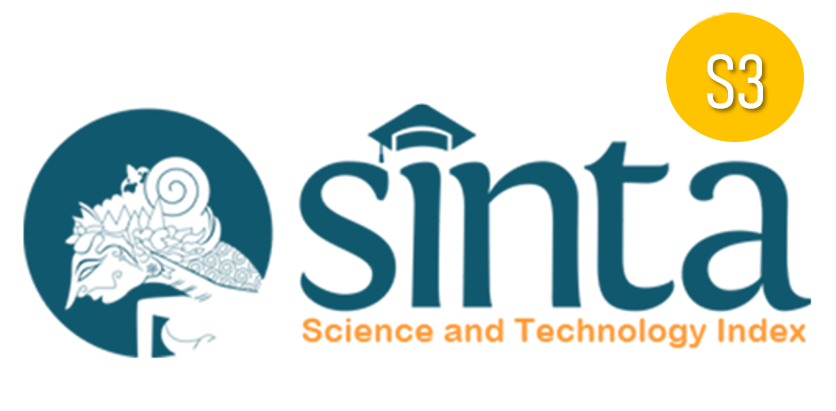Online Class: Its Implication Towards Academic Skills Development
Abstract
We aimed to find out the students’ academic skills development through the use of descriptive research design. In the experiment, we used random sampling to determine the level of students’ online discourse skills in terms of spoken and written means as well as the level of student’s development of academic skills. This research was conducted by distributing a customized and corrected questionnaire to the validation of the online learning questionnaire with a 4-point Likert scale interpretation to determine the interpretation of the values. Findings showed that the written discourse levels are moderate with a mean of 2.972, and spoken discourse is moderate with a mean of 2.822. The four-level students’ development skills were obtained, and most of them are moderate. Academic participation was obtained with a mean of 3.118, making inferences with 3.01, text composition with a mean of 2.93, and reading with a mean of 3.00. Based on the results of multiple surveys, there is a significant relationship between the online class and the development of academic skills as implied by the Pearson correlation test result at a 5% level of significance (Sig. <0.05). It also indicates a moderate or substantial correlation or relationship with a Pearson correlation coefficient of 0.54. This study has shed light on the wariness of these educators on how this means of learning have an impact on their learning and development.
Keywords
Full Text:
PDFReferences
Anggraeni, S., Rohmah, S. A., Putri, S. R., Ragadhita, R., Hofifah, S. N., and Nandiyanto, A. B. D. (2020). Video-based learning about the effect of various types of flour on the characteristics of sagon crackers for high school students. Journal of Engineering Education Transformations, 34(2020), 22-25.
Bolliger, D. U., Supanakorn, S., and Boggs, C. (2010). Impact of podcasting on student motivation in the online learning environment. Computers and Education, 55(2), 714-722.
Bower, M., Lee, M. J., and Dalgarno, B. (2017). Collaborative learning across physical and virtual worlds: Factors supporting and constraining learners in a blended reality environment. British Journal of Educational Technology, 48(2), 407-430.
Cromley, J. G., Snyder-Hogan, L. E., and Luciw-Dubas, U. A. (2010). Reading comprehension of scientific text: A domain-specific test of the direct and inferential mediation model of reading comprehension. Journal of Educational Psychology, 102(3), 687.
Haristiani, N., & Rifa’i, M. M. (2020). Combining Chatbot and Social Media: Enhancing Personal Learning Environment (PLE) in Language Learning. Indonesian Journal of Science and Technology, 5(3), 487-506.
Hashim, S., Masek, A., Abdullah, N. S., Paimin, A. N., & Muda, W. H. N. W. (2020). Students’ intention to share information via social media: A case study of COVID-19 pandemic. Indonesian Journal of Science and Technology, 5(2), 236-245.
Hashim, S., Masek, A., Mahthir, B. N. S. M., Rashid, A. H. A., & Nincarean, D. (2021). Association of Interest, Attitude and Learning Habit in Mathematics Learning Towards Enhancing Students’ Achievement. Indonesian Journal of Science and Technology, 6(1), 113-122.
Karlin, S. (2009). Dumb and dumber [Review of" The Dumbest Generation: How the Digital Age Stupifies Young Americans and Jeopardizes Our Future, Or Don't Trust Anyone Under 30"(Bauerlein, M.; 2008)]. IEEE Spectrum, 46(2), 19.
Kirschner, P., and Selinger, M. (2003). The state of affairs of teacher education with respect to information and communications technology. Technology, pedagogy and education, 12(1), 5-17.
Lestari, P. A. S., Gunawan, G., & Yulianci, S. (2020). Effectiveness of Online Lectures Using Digital Platform During the Pandemi Covid-19. Indonesian Journal of Applied Science and Technology, 1(3), 107-115.
Levy, M., and Stockwell, G. (2013). CALL dimensions: Options and issues in computer-assisted language learning. Routledge 11(2), 1-4.
Lindsey, N. S., and Rice, M. L. (2015). Interpersonal skills and education in the traditional and online classroom environments. Journal of Interactive Online Learning, 13(3), 126-136.
Mulyanti, B., Purnama, W., & Pawinanto, R. E. (2020). Distance learning in vocational high schools during the covid-19 pandemic in West Java province, Indonesia. Indonesian Journal of Science and Technology, 5(2), 271-282.
Murphy, C., and Greenwood, L. (1998). Effective integration of information and communications technology in teacher education. Journal of Information Technology for Teacher Education, 7(3), 413-429.
Nandiyanto, A. B. D., Rohman, E., Handayani, M. N., and Putri, S. R. (2020). E-Module in producing briquettes from melinjo (gnetum gnemon) shell with various particle sizes and binder concentrations for vocational school students. Journal of Engineering Education Transformations, 34(2020), 57-64.
Penrod, J. (2007). Living with uncertainty: Concept advancement. Journal of advanced nursing, 57(6), 658-667.
Purwanto, A., Nurjayadi, M., Suluya, R., and Ichsan, I. Z. (2020). EM-SETS: An integrated e-module of environmental education and technology in natural science learning. International Journal of Advanced Science and Technology, 29(3), 7014-7025.
Sangsawang, T. (2020). An Instructional Design for Online Learning in Vocational Education according to a Self-Regulated Learning Framework for Problem Solving during the CoViD-19 Crisis. Indonesian Journal of Science and Technology, 5(2), 283-198.
Sherer, P., and Shea, T. (2011). Using online video to support student learning and engagement. College Teaching, 59(2), 56-59.
Tella, A., and Adu, E. O. (2009). Information communication technology (ICT) and curriculum development: the challenges for education for sustainable development. Indian Journal of Science and Technology, 2(3), 55-59.
Waldrop, M. M. (2013). Education online: The virtual lab. Nature News, 499(7458), 268.
Walker, B., Shippen, M. E., Alberto, P., Houchins, D. E., and Cihak, D. F. (2005). Using the expressive writing program to improve the writing skills of high school students with learning disabilities. Learning Disabilities Research and Practice, 20(3), 175-183.
Winarni, R. S., & Rasiban, L. M. (2021). Perception of Japanese Students in Using Online Video as A Learning Media. Indonesian Journal of Educational Research and Technology, 1(1), 15-16.
DOI: https://doi.org/10.17509/ijert.v1i2.33412
Refbacks
- There are currently no refbacks.
Copyright (c) 1970 Universitas Pendidikan Indonesia

This work is licensed under a Creative Commons Attribution-ShareAlike 4.0 International License.







.png)




